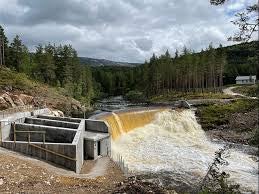The International Hydropower Association has announced that the results of a Hydropower Sustainability Assessment Protocol assessment of the 37.6MW Kabeli-A run-of-river hydropower project under preparation in Nepal have been published, with the project scoring basic good practice or better on all of the 22 topics assessed, achieving proven best practice on half of them.
Kabeli-A is being developed by Kabeli Energy Ltd (KEL), a special-purpose company established in 2010. A significant proportion of its funding is provided by the World Bank and the International Finance Corporation.
The assessment was carried out through a partnership between the International Hydropower Association, which manages the worldwide implementation of the protocol, and the Norwegian Agency for Development Cooperation (NORAD).
It was carried out in September 2014, when the project was in the preparation stage. During the one-week process, a team of accredited assessors visited the project site, conducted over 50 interviews with a range of stakeholders, and reviewed documentation.
Prior to the assessment, KEL undertook a training course and a preparation visit, with the support of the project assessors.
Pratik Man Singh Pradhan, vice president business development of Butwal Power Company (KEL’s parent company), said: "This project is now a reference for us, and means that we are well prepared to deliver future projects sustainably from an environmental and social perspective.
"With hydropower it has always been about local social and environmental issues, so undertaking this assessment has been really helpful. It has given us confidence that the project has been very well prepared."
The project is due to begin construction in spring 2015.
The Hydropower Sustainability Assessment Protocol is a tool for assessing hydropower projects across a comprehensive range of social, environmental, technical and economic topics. It has been successfully implemented around the world, and can be applied at any stage of a project’s lifecycle. Find out more at www.hydrosustainability.org.
You can view the full report of Kabeli-A here.






